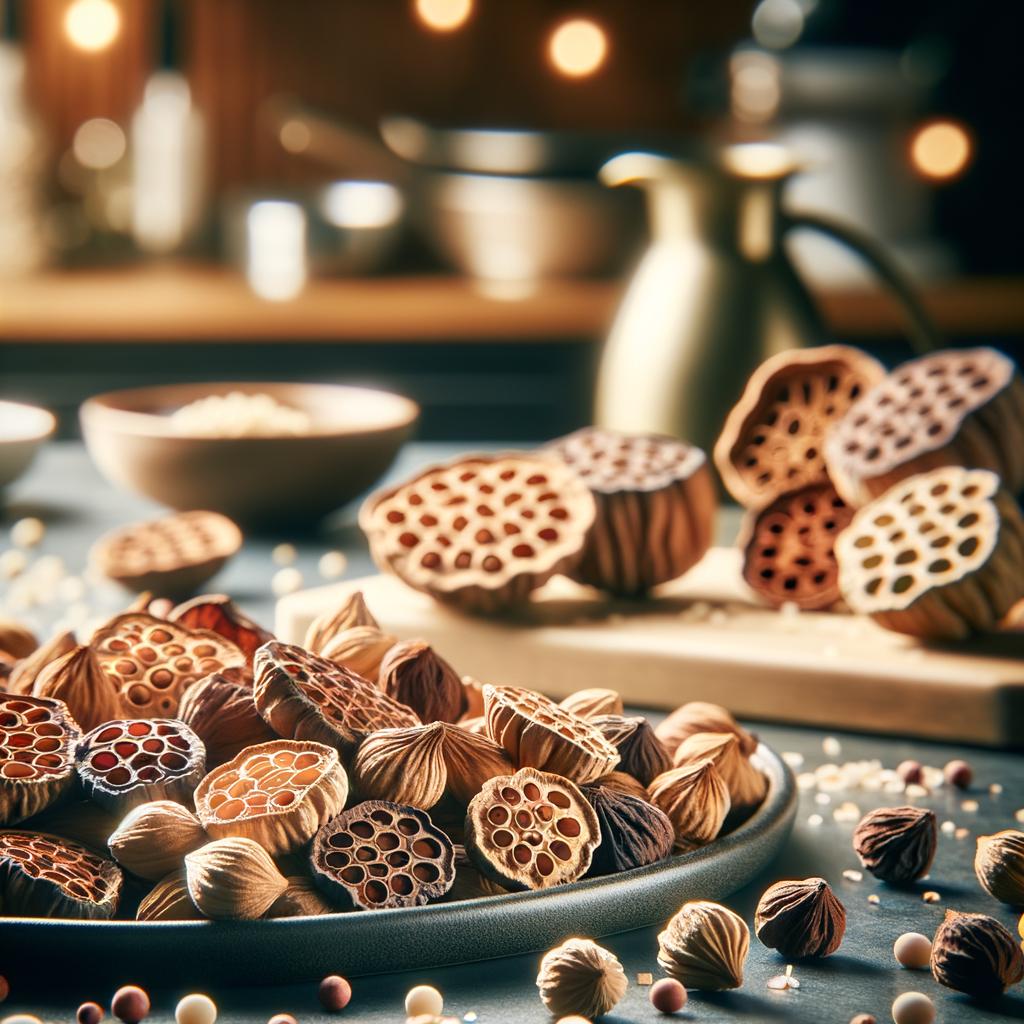Dried Lotus Seeds

Description
Dried lotus seeds, also known as 'Lian Zi', are a cherished ingredient in many Asian cuisines. They resemble small, round pebbles, varying from creamy white to a rich, earthy brown in color. Their texture is hard and crunchy when raw, but after soaking and cooking, they transform into a soft, starchy consistency akin to cooked beans. The flavor profile of lotus seeds is subtly sweet and nutty, often described as a more delicate version of chestnuts. What sets them apart from other seeds is their unique ability to retain a slight crunch even after prolonged cooking, giving dishes a delightful textural contrast.
Primary Uses
Lotus seeds are a versatile ingredient, lending themselves to both sweet and savory dishes. They are a fundamental component in traditional Chinese desserts, such as the sweet lotus seed soup and mooncakes, where their mild sweetness complements the rich, decadent fillings. In Indian cuisine, they are often used in 'kheer', a creamy rice pudding. Beyond the culinary world, lotus seeds have been used in traditional Chinese medicine for their purported benefits in aiding digestion and improving sleep quality. They also hold a special place in Buddhist rituals, symbolizing spiritual enlightenment and purity.
History
The history of lotus seeds is steeped in intrigue and romance. They have been consumed in Asian countries for over a thousand years, with their cultivation dating back to the period of the Lotus Sutra in Buddhism. The seeds have been found perfectly preserved in ancient tombs, a testament to their significance in historical diets and rituals. Over time, their use has evolved from a staple food to a delicacy, enjoyed in refined dishes and desserts. The lotus plant, from which the seeds come, is also surrounded by folklore. In Hindu mythology, it is considered sacred and is associated with the goddess of wealth, Lakshmi, symbolizing prosperity and fertility.
Nutritional Information
Nutritionally, dried lotus seeds are a powerhouse. They are rich in protein, magnesium, potassium, and phosphorus, providing essential nutrients for heart health and bone strength. They also contain an impressive amount of dietary fiber, aiding in digestion and promoting a sense of fullness. In comparison to other seeds, lotus seeds have a lower fat content, making them a healthier choice for those monitoring their calorie intake. However, like all foods, they should be consumed in moderation as part of a balanced diet. Their subtle sweetness and unique texture not only make them a delight to eat but also a nourishing addition to any meal.

